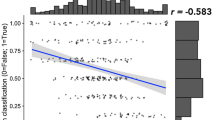Abstract
THE problem of the relation between science and ethics has been very much to the fore in recent years. Let me say at once that I am not among those who regard ethics as a department, or even a possible department, of science. It seems to me to stand right outside the scope of scientific investigation. I will explain why presently, but I may say here that it is not because I have some other kind of solution of the ethical problem to offer. I have none ; and all that I can hope to do is to state a question and not to give an answer. I will try to isolate the problem and show why in my view it fails to qualify as a science.
This is a preview of subscription content, access via your institution
Access options
Subscribe to this journal
Receive 51 print issues and online access
$199.00 per year
only $3.90 per issue
Buy this article
- Purchase on Springer Link
- Instant access to full article PDF
Prices may be subject to local taxes which are calculated during checkout
Similar content being viewed by others
References
"Science and Ethics", p. 101.
"Philosophy and Logical Syntax", p. 23.
Author information
Authors and Affiliations
Rights and permissions
About this article
Cite this article
DINGLE, H. SCIENCE AND ETHICS*. Nature 158, 184–187 (1946). https://doi.org/10.1038/158184a0
Issue Date:
DOI: https://doi.org/10.1038/158184a0
Comments
By submitting a comment you agree to abide by our Terms and Community Guidelines. If you find something abusive or that does not comply with our terms or guidelines please flag it as inappropriate.


